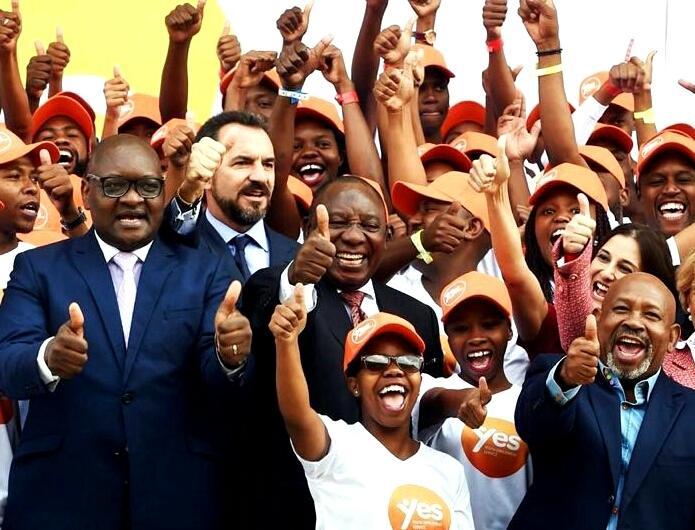The African Transformation Movement (ATM) and several analysts are casting doubt on the government’s claim that the Presidential Youth Employment Initiative (PYEI) has created over 1.5 million jobs since its launch in 2020. This initiative was introduced by President Cyril Ramaphosa to address South Africa’s youth unemployment crisis, which currently stands at a staggering 45.5%.
While Deputy Minister in the Presidency, Nonceba Mhlauli, recently announced that the PYEI has generated 1.57 million job opportunities, the ATM and critics argue that these claims lack transparency and accountability. The party is calling for detailed, verifiable data on the actual outcomes of the initiative, which they believe has not been substantiated by the available evidence.

ATM spokesperson Zama Ntshona expressed concerns about the vagueness of the government’s report and stressed the need for clarity on the number of beneficiaries, the sectors in which they are employed, and the real impact of the initiative. He pointed out that claims of success without concrete evidence do not help build public trust, which is essential for any government program aimed at addressing such a critical issue.
“Transparency is crucial for the public to understand the impact of government programs and to hold leaders accountable for their promises,” Ntshona said. He urged the ANC-led government to provide a more comprehensive breakdown of the data to show the true state of affairs regarding youth employment. Only through accountability, he argued, can South Africa build a brighter future for its youth.
Duma Gqubule, a research associate at the Social Policy Initiative, also challenged the government’s assertions. He argued that the jobs created through the PYEI are not permanent, full-time employment but rather part-time work or “piece jobs” that do not provide a sustainable income. Gqubule emphasized that many of these positions only offer stipends, often below the minimum wage.
He highlighted the Basic Education Employment Initiative, which placed about 200,000 people in schools during the COVID-19 pandemic, but these roles were short-term, typically lasting eight months, with some individuals working just two days a week. The limited nature of these opportunities, Gqubule stated, undermines the claim that the government has made significant strides in addressing youth unemployment.
Additionally, Gqubule pointed out a significant discrepancy: while the ANC’s manifesto had promised 2.5 million work opportunities, the government had halved the budget for the initiative during the 2024 Budget Speech, further raising questions about the sustainability of the initiative’s supposed success.
Political analyst Professor Ntsikelelo Breakfast also expressed skepticism about the government’s claims, suggesting that the figures were politically motivated, especially with the upcoming 2026 local elections in mind. He criticized the government for using self-generated reports to validate their success, stating that such reports cannot be considered credible sources. According to Breakfast, the government’s figures are designed to portray a positive narrative about the state of the country under the Government of National Unity (GNU), regardless of the actual circumstances.
Despite the growing criticism, Deputy Minister Mhlauli did not directly respond to these concerns but referred all questions to the government’s official report released earlier this week. As the debate continues, questions about the true impact of the PYEI and the government’s ability to address youth unemployment remain unanswered, with critics calling for greater transparency and evidence-based policies to address South Africa’s most pressing economic challenge.
